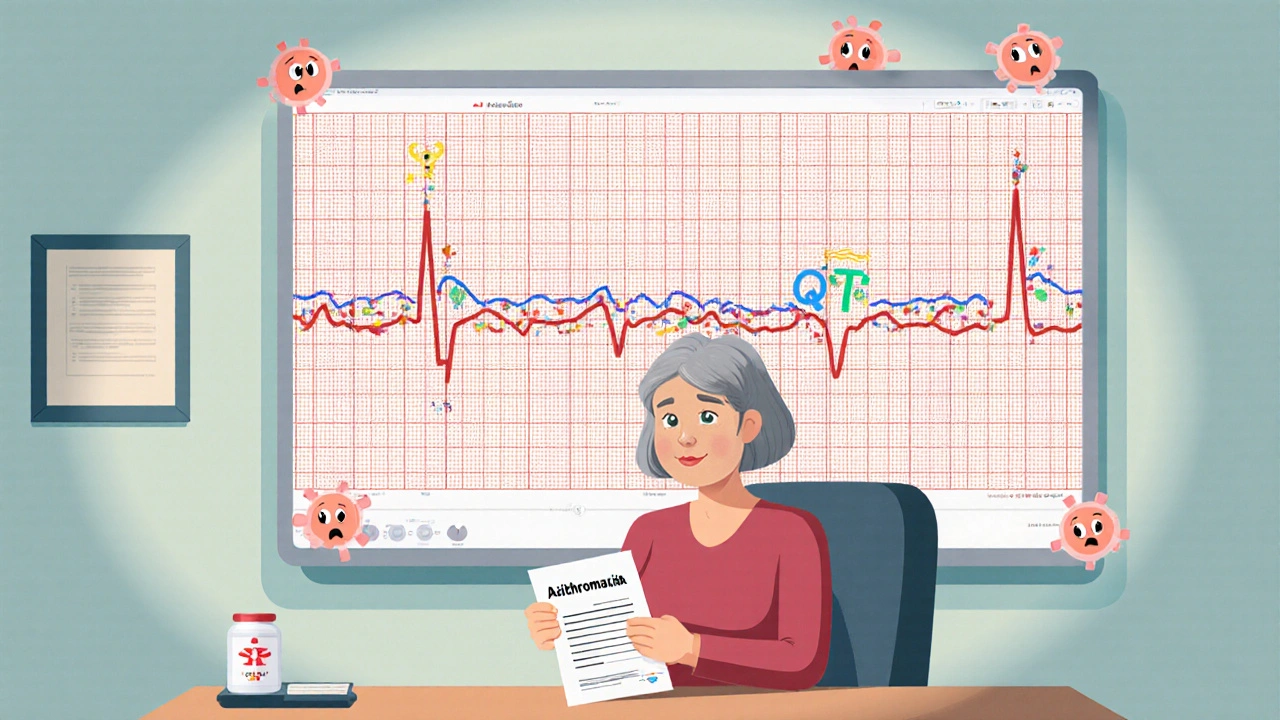QT Prolongation: Risks, Medications, and What You Need to Know
When your heart’s electrical cycle takes too long to reset, it’s called QT prolongation, a delay in the heart’s repolarization phase that can lead to life-threatening irregular rhythms. Also known as long QT syndrome, it’s not always genetic — often, it’s triggered by everyday medications you didn’t realize could mess with your heart’s timing. This isn’t just a lab result. It’s a real risk that can flip a routine prescription into a cardiac emergency.
Many common drugs — from antibiotics to antidepressants — can stretch out the QT interval. Torsades de pointes, a dangerous type of irregular heartbeat that can cause fainting or sudden death, is the most feared outcome. It doesn’t always come with warning signs. Some people feel dizzy or have palpitations. Others drop without notice. The real danger? It often happens when multiple drugs are mixed. For example, combining an antibiotic like azithromycin with an antidepressant like citalopram can push your QT interval past the danger line. Even something as simple as low potassium or magnesium — common in people on diuretics like hydrochlorothiazide — can make things worse. Your heart doesn’t care about your prescription list. It just follows the rules of electricity, and when those rules get broken, trouble follows.
It’s not just about avoiding one bad drug. It’s about understanding how your whole medication stack adds up. Many people take a blood pressure pill, an anxiety med, and a painkiller without knowing they’re all quietly stretching their heart’s electrical cycle. The FDA tracks this. Pharmacists flag it. But if you’re not asking the questions, the risk stays hidden. That’s why posts here cover drug interactions you might not expect — like how Ginkgo Biloba can thin your blood, or how antiretrovirals for HIV can interfere with heart rhythm meds. These aren’t isolated issues. They’re pieces of the same puzzle: your body’s electrical system under pressure from multiple sources.
What you’ll find below isn’t just a list of articles. It’s a practical guide to spotting the hidden risks in your meds. From how generic drugs are approved to how copay cards can mask long-term dangers, these posts connect the dots between everyday choices and heart safety. You won’t find fluff. Just clear, direct info on what to watch for, what to ask your doctor, and how to keep your heart beating the way it should.
ECG Monitoring During Macrolide Therapy: Who Needs It
Macrolide antibiotics like azithromycin can prolong the QT interval, raising the risk of dangerous heart rhythms. Learn who needs an ECG before taking them - and why skipping screening can be risky.
Keep Reading
